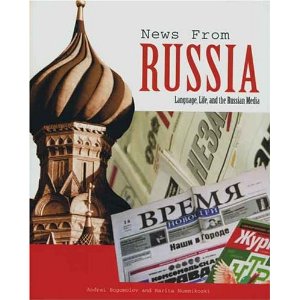 The closer we get to the presidential election, the more anti-American discourse appears in Russian media. The anti-American rhetoric is not a novelty in a country that lived through decades of the Cold War parity with the United States; it takes a long time for old phobias and fears to be reconsidered. Meanwhile, whatever is left of these could be successfully exploited by any party for advancing their political goals. The question is how receptive is the population to this old sentiment?
The closer we get to the presidential election, the more anti-American discourse appears in Russian media. The anti-American rhetoric is not a novelty in a country that lived through decades of the Cold War parity with the United States; it takes a long time for old phobias and fears to be reconsidered. Meanwhile, whatever is left of these could be successfully exploited by any party for advancing their political goals. The question is how receptive is the population to this old sentiment?
For the past two months, the list of accusations against the United Stated in Russian media has become quite extensive. It begins with blaming the foreign government in paying off oppositional leaders in order to create an environment of a political crisis in the country, touches upon ever persistent US – Russia children adoption issues and also involves the recent failure of the Russian space probe. Add to that the announcement by President Medvedev on exposing 199 foreign spies over the last year and a recent military trial of a Russian engineer who was allegedly passing information to CIA, and as a result, this overall picture could not help but create an emotion of insecurity and suspicion of the U.S. among the general population.
The escalating anti-foreign rhetoric and allegations of interference in Russia’s internal affairs is clearly aimed to divert attention from the importance of the ongoing protests and shift public attention to artificially intensified ideas of a foreign threat. How likely is it to succeed?
The perception of an ever-present foreign enemy is still rather strong among the general population. For instance, 2010 polls showed that 33 percent of the Russian population believes that Western countries present the main threat to Russia, while 73 percent perceive the United States as an aggressor seeking to control the world. Yet, the participants of the protests consist mostly of young, educated middle class people who are more focused on domestic issues and might see foreign threats as less relevant, if at all relevant, to their current agenda. Their main demands include fair elections, elimination of corruption and working justice institutions.
So far, the protests have been peaceful but persistent with their general attitudes set against Vladimir Putin. Nevertheless, a larger part of the Russian population either supports Putin’s policies, remembering that he brought Russia stability after the dashing 90s, or simply find no better alternative to him. This unshakable support of Putin believers and the peaceful character of the demonstrations present the current regime with time and opportunities to adjust their strategy to a changing political culture in Russia. However, the tools the political leadership chooses to use will define which audience they will be able to reach. While anti-foreign discourse may appeal to many, it will hardly influence the attitudes of a smaller, but critical fracture of protesting citizens.